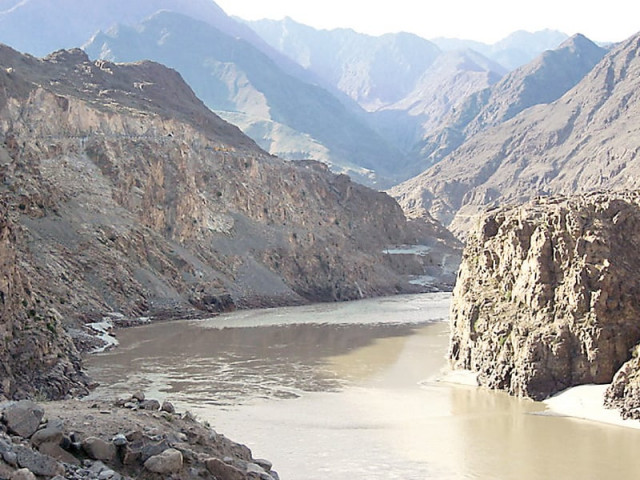Back to negotiations: Pakistani, US officials to discuss energy projects
Possible proposals for cooperation in TAPI pipeline, LNG imports expected.

Even as President Asif Ali Zardari’s plane takes him to Teheran on Friday (today), where he will discuss the implementation of a financing plan for the Iran-Pakistan gas pipeline project, US officials in Islamabad will be goading their Pakistani counterparts towards pursuing energy import projects that do not involve the sanctioned Iranian regime.
The Pakistan-US Energy Working Group has a lot on its plate. When it meets, senior officials from both countries will hold lengthy negotiations on cooperation in the energy sector: including the multibillion dollar Turkmenistan-Afghanistan-Pakistan-India (TAPI) gas pipeline, potential LNG import projects, and the oft-delayed Diamer Bhasha Dam. Power sector reforms will also be among the top issues taken up in the meeting.
According to a copy of the agenda of the meeting, petroleum ministry officials will update the US on the energy supply and demand situation, the distribution of the fuel mix, the climate of investment for US energy companies interested in the country, and progress on the TAPI gas pipeline project. A petroleum ministry official told The Express Tribune that Pakistan will seek assistance for the TAPI gas pipeline project from the US government’s Overseas Private Investment Corporation (OPIC).
Officials said the petroleum ministry will also brief the visiting delegation on prospects for LNG import projects in Pakistan, for which Pakistan seeks US engagement and investment. OPIC is reportedly interested in financing private LNG importers: it had signed a nonbinding agreement with Pakistan GasPort (PGP) in October 2011 for the financing of the latter’s LNG import project. According to sources, other private parties working on LNG imports have now been invited to the working group’s meeting. However, “For reasons best known to the Ministry of Water and Power, PGP has not been invited; even though its competitors – Global Energy Infrastructure and Engro – will be there.”

“The petroleum ministry is framing a shale gas policy, and US input will be sought so as to attract US firms towards undertaking exploration in Pakistan,” officials from the ministry revealed. The US has recently discovered significant shale gas reserves on its soil, and the petroleum ministry wishes to learn a lesson or two from its experiences.
Possible roles of the US and international financial institutions in the funding of the Diamer Bhasha Dam will also be considered. “The US has [already] proposed securitisation of dam assets to generate funds for the [Diamer] Bhasha Dam. An implementation model will be shared with US authorities [in the meeting],” officials added.
Pakistani officials will also update the US team on reforms implemented in the power sector – a longstanding demand of donors. However, it is doubtful whether they will succeed to impress. Under past proposals, the government was urged to dissolve the Pakistan Electric Power Company, grant autonomy to power distribution companies and eliminate all subsidies extended to the power sector. For four years now, the Pakistani government has failed on all these counts.
The regulatory environment and improvements required in the National Electric Power Regulatory Authority (Nepra) will also come under discussion. “Nepra currently approves a tariff for consumers on account of the fuel adjustment surcharge on a monthly basis and revises its base tariff every quarter. Donors want the base tariff to be adjusted on a monthly basis as well, so as to end electricity cost distortions and do away with the need to extend subsidies,” officials from the Ministry of Water and Power said.
The circular debt –another thorny issue with donors – will also come under discussion. The US team will seek a briefing on the current volume of the debt, which has crossed Rs500 billion despite the issuance of term finance certificates worth Rs82 billion against reserves held by the Oil and Gas Development Company. It is widely believed that circular debt is a major hindrance in investment in the energy sector.
Published in The Express Tribune, December 7th, 2012.



















COMMENTS
Comments are moderated and generally will be posted if they are on-topic and not abusive.
For more information, please see our Comments FAQ